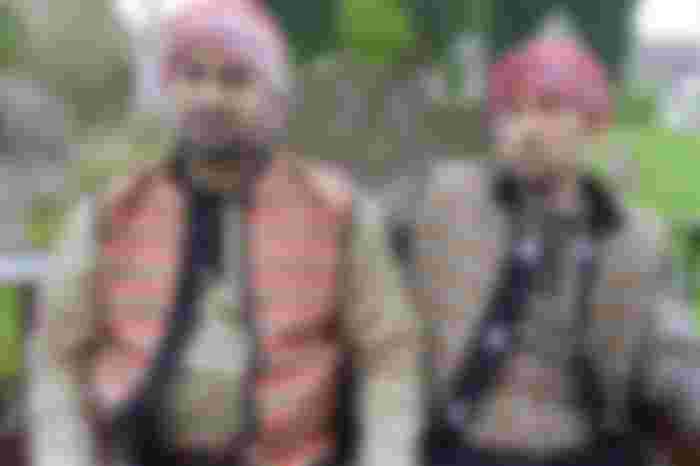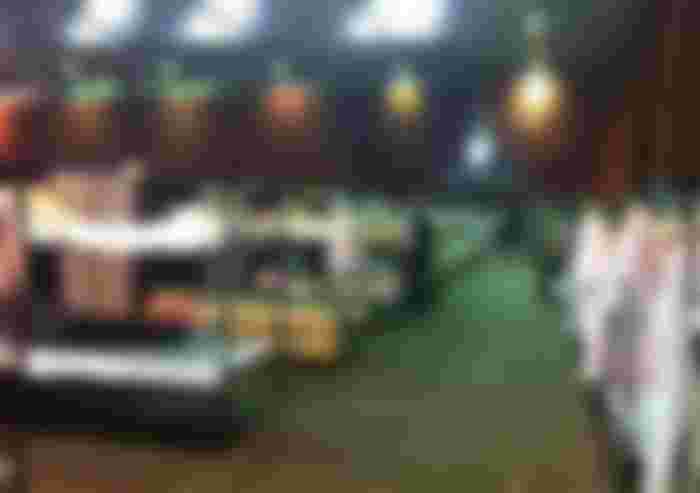
Right.(My Big Brother) Left.(Me)
I used to send money from the Netherlands to my family in Lebanon twice a month, and the fees were killing me. Even worse, the long waiting lines at money transfer shops were torture. There are still a lot of insurmountable restrictions on money transactions, especially those that exclude large populations around the world.
For example, a sizable segment of people in Saudi Arabia doesn’t have residence permits and are not able to transfer money to their families in countries such as India or Pakistan. Bitcoin doesn’t have those restrictions or involve exorbitant transactional charges.
Later in 2013, I started a Facebook group on bitcoin. I moderated the page and had discussions with many of the 10,000 people who came there, most of whom were from Egypt. I met a lot of interesting people in that group.
Then, in 2014, everything started going wrong. My European residency card expired at the end of that year and there was a war going on back home. People said Hezbollah, the local militia, was fighting to keep ISIS out of Lebanon.
TECHNOLOGY IS HELPING US LIVE IN A WORLD WHERE WE NEED TO TRUST LESS AND VERIFY MORE.
Half of Syria was flooding into the Netherlands back then, and smugglers were active on the other side of Europe. I bought a small book to teach me how to pray in Islam, then started to practice my prayers and listen to the Koran. I also started listening to Sayed Hassan Nasrallah’s speeches, his recitals and calls to fight alongside Hezbollah in Syria. I was surrendering to my fate of being deported to Syria or Lebanon.
Sleepless nights went by, with the Facebook pages continuously broadcasting images of the brutality of war in Syria. I did not want to be part of this.
On Sept. 11, 2014 , 500 migrants lost their lives in the Mediterranean Sea attempting to cross to safe land. It was at that moment I realized how blessed I was to be in Europe, and I surrendered to the idea of becoming a refugee.

The refugee camp where I spent my 30th birthday.
Meanwhile, I kept working on the Facebook page I ran with a top Egyptian software engineer and early adopter of bitcoin. The Egyptian bitcoin users kept me busy. I chatted with a lot of people and answered their questions on the mining process, price speculation, buying bitcoin and selling it. They knew I was moderating from Holland, but didn’t know I was now partially undocumented.
I turned 30 in the camp and lied to my parents, telling them I was in my nice European apartment waiting for the immigration authorities to renew my residency. Nobody knew I was living alongside the other Arab refugees in a camp except me.
Refugees do not have IDs, so they can’t have bank accounts. They don’t know anyone in the Netherlands, not yet at least. Bitcoin became an even bigger part of my professional work. The constant exposure to crypto landed me translation jobs for reporters who were covering bitcoin stories.
On sunny days, I earned a few hundred euros as an escrow agent connecting buyers and sellers of bitcoin. In July 2015, I earned a technical expertise certificate from the University of Nicosia and registered on the bitcoin blockchain. Finally, I was credentialed, a professional and no longer a hobbyist.
SLOWLY MY BITCOIN IDENTITY WAS OVERCOMING MY REFUGEE IDENTITY.
The general public looks at the Bitcoin network as a gambling game in which you can lose all your money. Many meetups were starting to appear in the Netherlands. I started working as a speaker. One such event in the Netherlands was called Bitcoin Wednesday, held on the first Wednesday of every month. Slowly, my Bitcoin identity was overcoming my refugee identity.
For years to come and every time I come out onto a stage, I would ask people to put their hands in their pockets and take the coins out. In return I would give them bitcoin for the same amount. Why? Because the best way to understand bitcoin, especially after they hear the pizza story, is to use it.
Money and identity have been hand-in-hand for centuries, yet I used bitcoin without an identity. Besides my email, I did not need anything to use money and transact digitally. However, I do need an identity to present myself to the world and interact with services like education and diplomas, health care and vaccines, travel and airline tickets. Technology is helping us live in a world where we need to trust less and verify more.
I have travelled to more than 25 different European cities and a few in the Middle East delivering keynotes, public presentations and leading workshops showing organizations the digital future of education, money and business where it is built on principles of don’t trust, verify.
Bitcoin may not be useful for everything, but it sure as hell changed my entire life.


Happy 4 u